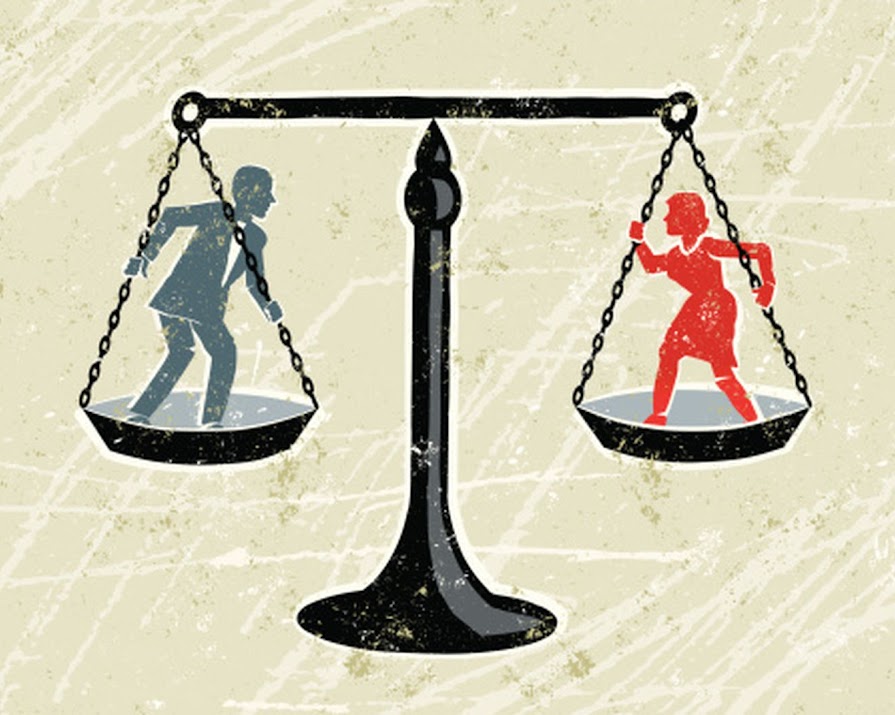
By Victoria Stokes
20th Apr 2023
20th Apr 2023
Workplace misogyny puts women at risk of sexual aggression, undermines confidence, hampers career progression and upholds the gender pay gap. But it is not always obvious. So, as a female leader, how can you spot it and what can you do to tackle it?
We’re four months into 2023, but you don’t have to look too far to see that misogyny is rife. Whether it’s the rise of alleged sex trafficker Andrew Tate, the latest Donald Trump scandal involving alleged affairs or Jeremy Clarkson’s hate-filled comments about Meghan Markle, one thing is clear: in certain corners of society, misogyny is en vogue.
But misogyny isn’t just dominating your Twitter feed, it could be permeating your workplace too, and it can be incredibly insidious. Workplace misogyny puts women at risk of sexual aggression, it undermines their confidence, hampers their career progression, and upholds the gender pay gap.
The tricky part when it comes to dismantling sexism at work? It’s not always overt. So, as a woman in business, what can you do about it?
Advertisement
An ugly rise
For Dr Samantha Madhosingh, a leadership consultant, executive coach, and psychologist, getting to grips with misogyny in the workplace means understanding what misogyny actually is.
It can encompass more subtle signs of sexism, like being unconsciously overlooked for a promotion or interrupted in a meeting, but it can also be more intentional, aggressive, predatory, and threatening in nature.
In the workplace, misogyny can take many forms, from harassment to a lack of respect for female superiors and peers.
“Definitions of misogyny include dislike of, contempt for, or ingrained prejudice against women. But in extreme instances, it can reflect an actual hatred for and promotion of violence toward women,” Madhosingh surmises.
In the workplace, misogyny can take many forms, from harassment to a lack of respect for female superiors and peers.
“Comments that imply a woman hasn’t earned her position, title, or role (“she was only picked for the job because she’s a woman, “They have a quota to meet” or “Nudge, nudge, wink, wink…I wonder how she got that job”) are inherently misogynist,” says Madhosingh.
Advertisement
54% of women have experienced sexual harassment at work – Zippia study
“Likewise, sexist humour or jokes, mansplaining, a lack of respect for her role or position, silencing or ignoring women’s comments in meetings, constant commentary on how a woman dresses, and finding ways to exclude women from board rooms are all examples of a misogynistic workplace culture.”
In many work environments, misogyny takes the form of sexual harassment. According to a study by career platform, Zippia, 54% of women have experienced sexual harassment at work, including behaviours like catcalling, requests for sexual favours and unwanted physical touch.
Tellingly, around 75% of workplace sexual harassment cases go unreported, with many fearing job loss or being labelled a “troublemaker”.
Influence of politics
Rikki Arundel, a gender expert and diversity consultant, believes that a “sharp move” towards right-wing politics may be to blame for misogyny’s recent resurgence – although it’s important to note that sexism is a problem that has never gone away. Arundel describes it as “coming back out from under the stone it was hidden by.”
The likes of Andrew Tate and Donald Trump may have encouraged misogynists in workplaces
Advertisement
“[The move to the right] has had a polarising effect. It’s stirred up previously hidden or suppressed emotions, and bigotry has become far more acceptable. It’s allowed many high-profile people to be openly bigoted without fear,” they muse.
The conclusion? The likes of Andrew Tate and Donald Trump, and the fanfare misogynists like them continue to get online, may have encouraged misogynists in workplaces across the country to come out of the woodwork as well.
Still, misogyny at work isn’t always obvious, especially when many women are understandably reluctant to speak up. So, how can you spot if it’s a problem at your place of work?
Importance of communication
Arundel believes opening the lines of communication is key. “Women in leadership positions need to look out for any signs of these kinds of sexism and misogyny and speak to women about their experiences. It may be that some are not fazed by the behaviour and see it as childish, but others may be feeling undermined by the behaviour,” they explain.
Madhosingh notes that, once you start looking more closely, there will likely be some clues. It can be obvious when women are talked over in meetings or when male colleagues make sexist remarks at their expense. However, a telltale sign that misogyny is present at your place of work is that the company culture as a whole is prejudiced against women.
“[Misogyny is present] when women are being paid less than their male counterparts or are not getting promotions because they are not being assessed or evaluated fairly or by the same standards as men,” Madhosingh notes.
Advertisement
What you can do
So as a woman in business, what can you do to fight misogyny? Both Madhosingh and Arundel agree that it’s imperative that you call it out when you see it.
Speaking up in the moment and addressing the issues directly means you can help others to change their behaviour
Whether it’s microaggressions, inappropriate jokes, or a lack of support for women’s ideas, Madhosingh says by speaking up in the moment and addressing the issues directly you can help others begin to change their behaviour.
Ensuring your female colleagues can voice their concerns is key when it comes to tackling the silence that often allows sexism and misogyny to exist. “There needs to be a safe space for women to speak to each other about their experiences and have advocates take the issues to HR,” says Madhosingh.
Ask yourself: what channels are in place for women at your work? Arundel suggests funding an Employee Resource Group (ERG) for women. “Once an organisation has a Women’s ERG in place, one of their roles will be to recruit Champions throughout the organisation,” they explain.
“Champions are identified staff representatives of the ERG usually in each department who anyone can speak to if they have a problem. The ERG usually has representation at senior management level so that serious issues can be brought to the attention of the management team.”
Advertisement
As a female leader, you have incredible influence when it comes to changing the landscape for working women today and in the future.
Arundel believes creating a company culture where sexism and misogyny are simply unacceptable and will not be tolerated is crucial. This not only includes calling out sexism, but ensuring there are a clear set of guidelines on how to report it – or any other form of bias.
Role of men
It’s important to remember that men have their part to play too and the onus shouldn’t exclusively be on women to create fairer, safer spaces.
“Partner with men who are interested in having a safer workplace for all employees and who want to change the work culture and advocate for gender equality and pay parity,” Madhosingh advises. “Men absolutely must be a part of the solution. Women cannot solve misogyny on their own.”
As a female leader, you have incredible influence when it comes to changing the landscape for working women today and in the future. “You can use your platform to advocate for policies and practices that promote gender equality, such as equal pay, flexible work arrangements, and family-friendly benefits,” Madhosingh points out.
“You can encourage your company to conduct a gender pay gap analysis and implement strategies to close the gap.”
Advertisement
Only when we have powerful voices who are willing to advocate for working women will things truly begin to change.
























